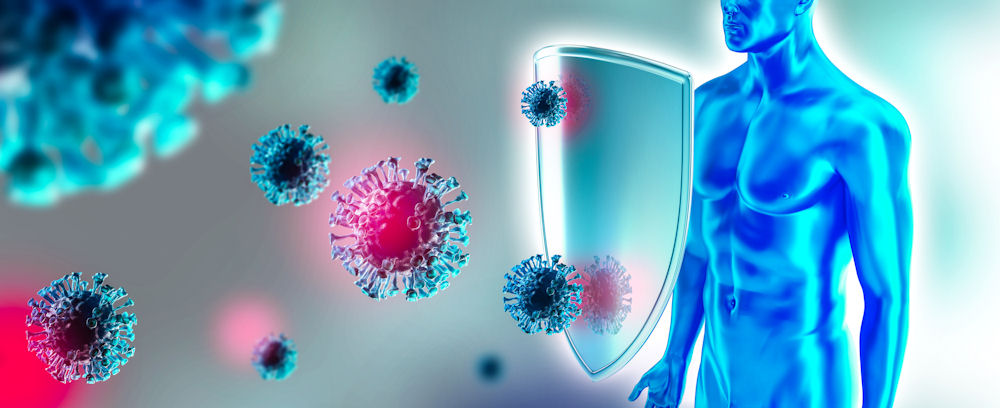In the vibrant community of Crystal Lake, Northern Illinois Recovery Center stands as a beacon of hope and healing for individuals grappling with the complexities of alcohol use and its impact on autoimmune diseases. As research continues to uncover the intricate relationship between alcohol consumption and autoimmune conditions, understanding this connection becomes crucial for those seeking treatment or striving to manage their health effectively.
Our dedicated team at NIRC is committed to providing expert guidance and a supportive environment, empowering individuals to navigate these challenges with confidence and clarity. Join us as we delve into how alcohol affects autoimmune diseases and explore pathways to wellness and recovery.
Understanding Autoimmune Diseases
Autoimmune diseases occur when the immune system, which normally protects the body from infections and diseases, begins to attack healthy cells. This misguided response can lead to inflammation, damage to tissues and organs, and a range of health issues.
These diseases can emerge in various forms, and their specific causes often remain unclear, involving a combination of genetic, environmental, and immunological factors. Understanding this fundamental definition is essential for grasping the broader implications of lifestyle choices, including drinking alcohol. For instance, certain autoimmune diseases may be exacerbated by alcohol, as it can influence immune system function and contribute to inflammation, making it crucial for individuals with these conditions to be mindful of their drinking habits.
There are over 80 known autoimmune diseases; some of the most common include:
- Rheumatoid Arthritis (RA)
- Lupus
- Multiple Sclerosis (MS)
- Type 1 Diabetes
- Hashimoto’s Thyroiditis
Each autoimmune condition has its unique symptoms, but they often share a common characteristic of chronic inflammation. Understanding the specifics of these diseases can aid in recognizing how external factors, like alcohol, may interact with these underlying issues.
For example, individuals with Rheumatoid Arthritis may experience increased joint pain and stiffness after consuming alcohol, while those with Lupus might find that alcohol can trigger flare-ups of their symptoms.
Furthermore, the psychological impact of living with an autoimmune disease can be profound, often leading to feelings of isolation and anxiety, which the social aspects of alcohol consumption can compound. This highlights the importance of a supportive community and healthy coping mechanisms to manage both the physical and emotional challenges posed by autoimmune diseases.

How Alcohol is Processed in the Body
When alcohol enters the body, it is primarily metabolized in the liver. The liver breaks down ethanol into acetaldehyde, which is further processed into less harmful substances. However, this rapid processing leads to developments that can have significant health implications.
This is particularly concerning for individuals with autoimmune diseases, as already compromised immune responses may be further impaired. The liver’s ability to detoxify the body diminishes with chronic alcohol use, which can result in a buildup of toxins that may exacerbate existing health issues.
Long-term Effects of Alcohol Consumption
Long-term alcohol consumption is linked to various health problems, including liver disease, cardiovascular issues, and neurological disorders. For those with autoimmune diseases, these risks become increasingly significant. Furthermore, the relationship between alcohol and mental health cannot be overlooked; chronic alcohol use is often associated with anxiety and depression, creating a vicious cycle that can lead to increased alcohol consumption as individuals seek relief from their symptoms.

Moreover, chronic alcohol use can lead to imbalances in the immune system. Studies indicate that heavy drinking can even result in increased inflammation, contradicting the perception that moderate alcohol intake might have anti-inflammatory effects. This inflammatory response can manifest in various ways, including joint pain and fatigue, which can be particularly debilitating for individuals already dealing with autoimmune conditions. Additionally, the nutritional deficiencies often associated with heavy drinking can further impair immune function, creating a complex interplay between alcohol consumption and overall health that warrants careful consideration.
Alcohol and Autoimmune Diseases: The Connection
Alcohol as a Trigger for Autoimmune Diseases
Research suggests that alcohol consumption can act as a trigger for autoimmune disease flares. It can stimulate the immune system, leading to heightened inflammatory responses. This is particularly true in disorders like rheumatoid arthritis, where alcohol consumption is associated with increased disease activity.
Additionally, certain individuals may have a genetic predisposition that makes them more susceptible to the effects of alcohol on autoimmune diseases. This makes it essential for patients with known autoimmune disorders to monitor their alcohol intake closely.
The type of alcohol consumed can also play a role in its effects on autoimmune conditions. For instance, some studies have indicated that beer and spirits may have a more pronounced negative impact compared to wine, which contains polyphenols that may offer some anti-inflammatory benefits. This nuanced understanding of alcohol types underscores the importance of personalized dietary choices for individuals managing autoimmune diseases.
Alcohol’s Impact on Disease Progression
The impact of alcohol on the progression of autoimmune diseases remains a contentious topic among researchers. Some studies indicate that consumption can exacerbate symptoms and lead to more severe health outcomes, while others propose that moderate drinking might not significantly alter disease course.
However, it is crucial to approach this topic with caution. Individuals with autoimmune diseases are advised to consult with healthcare professionals regarding alcohol consumption, as personal tolerance levels and medical backgrounds can vary greatly. Furthermore, the psychosocial aspects of alcohol consumption should not be overlooked. For many, social drinking can provide a sense of community and relaxation, which are important for mental health. Balancing these social benefits with the potential health risks is a complex decision that requires careful consideration and, ideally, guidance from a healthcare provider.
The Science Behind Alcohol and Autoimmune Diseases
Recent studies have illuminated the complex relationship between alcohol and autoimmune diseases. For example, a 2022 study published in the journal *Nature Reviews* indicated that even small amounts of alcohol could trigger inflammatory pathways in genetically predisposed individuals.
Research has shown that heavy drinking can significantly increase the risk of developing autoimmune diseases among certain populations. Women, in particular, appear to be more adversely affected by alcohol consumption in relation to diseases like lupus. This gender disparity may be attributed to hormonal differences that influence immune responses, making women more susceptible to the detrimental effects of alcohol on their immune systems.
In addition to lupus, other autoimmune conditions, such as rheumatoid arthritis and multiple sclerosis, have also been linked to alcohol consumption. A comprehensive analysis of various studies found that individuals with a history of heavy drinking were at a higher risk for these diseases, suggesting that alcohol may act as a catalyst for autoimmune flare-ups. The implications of these findings are significant, as they underscore the need for targeted public health strategies aimed at educating individuals about the risks associated with alcohol consumption, particularly for those with a family history of autoimmune disorders.
Several theories have been proposed to explain the connection between alcohol and autoimmune diseases. One prominent hypothesis is the “leaky gut” theory, which suggests that excessive alcohol intake may increase gut permeability. This allows molecules that typically stay in the gut to enter the bloodstream, prompting an immune reaction. The resulting inflammation can exacerbate existing autoimmune conditions or even trigger new ones, particularly in individuals who are already genetically predisposed.
Another theory is based on the role of alcohol in modulating the microbiome. Alcohol can alter gut bacteria composition, potentially leading to an imbalance that may provoke autoimmune responses. For instance, certain beneficial bacteria that help regulate immune function may be diminished, while harmful bacteria could proliferate, leading to dysbiosis.
This shift in the microbiome can further complicate the immune system’s ability to distinguish between self and non-self, contributing to the development of autoimmune diseases. Ongoing research aims to explore how restoring a healthy microbiome through dietary interventions or probiotics might mitigate these risks, offering a potential avenue for prevention and treatment.
Managing Autoimmune Diseases: The Role of Alcohol
Alcohol Consumption Guidelines for Patients
For patients diagnosed with autoimmune diseases, moderation is critical. While complete abstinence from alcohol is not always necessary, healthcare professionals often recommend adhering to specific guidelines:
- Limit consumption to no more than one standard drink per day for women and two for men.
- Avoid binge drinking, which can significantly impair the immune system.
- Stay well-hydrated and consume alcohol with food to minimize its impact.
These guidelines serve as a framework to ensure that individuals with autoimmune diseases can make informed choices regarding alcohol consumption while carefully monitoring their health responses. It is also important to recognize that individual tolerance levels can vary widely; what might be manageable for one person could exacerbate symptoms in another. Therefore, keeping a detailed journal of alcohol intake alongside symptom tracking can provide valuable insights into personal triggers and help tailor a more effective management plan.

Lifestyle Changes for Disease Management
Beyond alcohol consumption, a comprehensive approach to managing autoimmune diseases often includes making various lifestyle changes. Some recommended changes include:
- Adopting a balanced diet rich in anti-inflammatory foods.
- Engaging in regular physical activity, tailored to one’s ability and condition.
- Practicing stress management and holistic techniques such as yoga or meditation.
- Seeking counseling or support groups for emotional well-being.
Each of these strategies can complement medical treatment and improve overall health and vitality for individuals living with autoimmune diseases. Nutrition plays a particularly vital role; foods high in omega-3 fatty acids, antioxidants, and fiber can help reduce inflammation and support immune function. Additionally, incorporating a variety of colorful fruits and vegetables can provide essential vitamins and minerals that bolster overall health.
Regular physical activity, even in moderate forms like walking or swimming, can enhance mood and energy levels, which is crucial for those managing chronic conditions. Furthermore, the mental health aspect cannot be overlooked—support networks can provide emotional relief and foster a sense of community, which is often invaluable in navigating the challenges of autoimmune diseases.
Are You Concerned About The Way Alcohol is Impacting Your or a Loved One’s Life?
As you reflect on the intricate ties between alcohol and autoimmune diseases, remember that taking control of your health is just a step away. At Northern Illinois Recovery Center in Crystal Lake, IL, we offer personalized care and expert support to guide you through the journey of recovery from alcohol addiction.
Our comprehensive treatment options are designed to address your unique needs, ensuring a compassionate and effective path to wellness. Don’t wait to reclaim your life—reach out to NIRC today and let us be your trusted partner in building a healthier, alcohol-free future.




